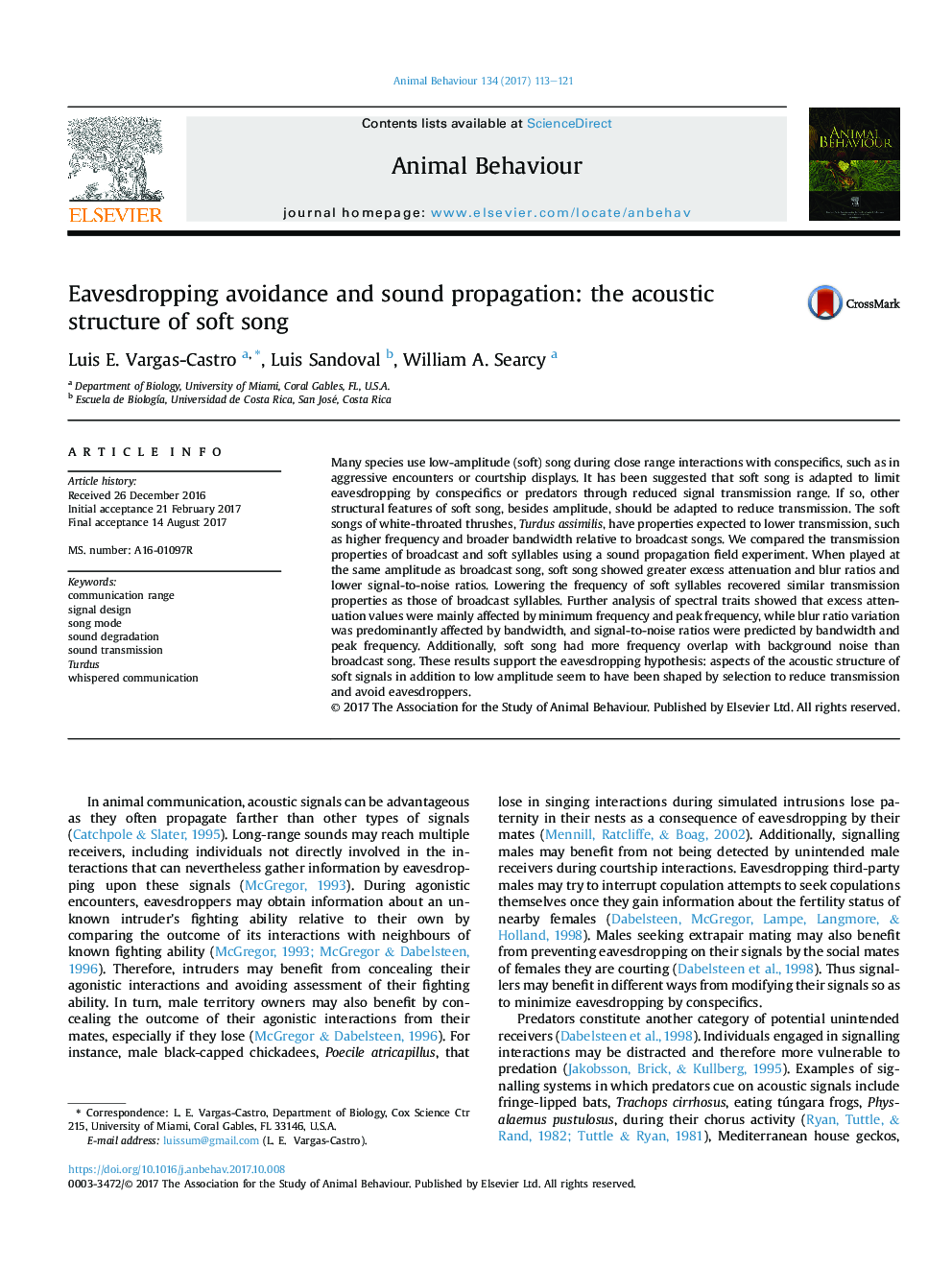| کد مقاله | کد نشریه | سال انتشار | مقاله انگلیسی | نسخه تمام متن |
|---|---|---|---|---|
| 8488786 | 1552194 | 2017 | 9 صفحه PDF | دانلود رایگان |
عنوان انگلیسی مقاله ISI
Eavesdropping avoidance and sound propagation: the acoustic structure of soft song
ترجمه فارسی عنوان
اجتناب از استعفای و پخش صدا: ساختار صوتی آهنگ نرم
دانلود مقاله + سفارش ترجمه
دانلود مقاله ISI انگلیسی
رایگان برای ایرانیان
موضوعات مرتبط
علوم زیستی و بیوفناوری
علوم کشاورزی و بیولوژیک
علوم دامی و جانورشناسی
چکیده انگلیسی
Many species use low-amplitude (soft) song during close range interactions with conspecifics, such as in aggressive encounters or courtship displays. It has been suggested that soft song is adapted to limit eavesdropping by conspecifics or predators through reduced signal transmission range. If so, other structural features of soft song, besides amplitude, should be adapted to reduce transmission. The soft songs of white-throated thrushes, Turdus assimilis, have properties expected to lower transmission, such as higher frequency and broader bandwidth relative to broadcast songs. We compared the transmission properties of broadcast and soft syllables using a sound propagation field experiment. When played at the same amplitude as broadcast song, soft song showed greater excess attenuation and blur ratios and lower signal-to-noise ratios. Lowering the frequency of soft syllables recovered similar transmission properties as those of broadcast syllables. Further analysis of spectral traits showed that excess attenuation values were mainly affected by minimum frequency and peak frequency, while blur ratio variation was predominantly affected by bandwidth, and signal-to-noise ratios were predicted by bandwidth and peak frequency. Additionally, soft song had more frequency overlap with background noise than broadcast song. These results support the eavesdropping hypothesis: aspects of the acoustic structure of soft signals in addition to low amplitude seem to have been shaped by selection to reduce transmission and avoid eavesdroppers.
ناشر
Database: Elsevier - ScienceDirect (ساینس دایرکت)
Journal: Animal Behaviour - Volume 134, December 2017, Pages 113-121
Journal: Animal Behaviour - Volume 134, December 2017, Pages 113-121
نویسندگان
Luis E. Vargas-Castro, Luis Sandoval, William A. Searcy,
